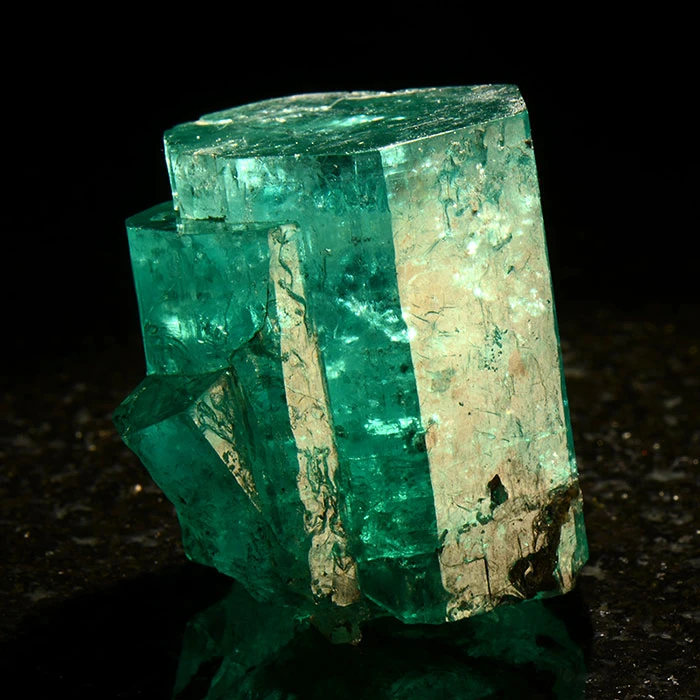Beryl (Mineral): Properties, Facts and Photos

What is Beryl?
Beryl is a natural mineral that comes in many different varieties. As a gemstone in its own right, it's relatively unknown.
In its purest form, beryl is colourless, but trace impurities of other minerals cause a variety of colours. Each colour has a unique name.
The best-known varieties of beryl include aquamarine, emerald and morganite. The intensity of a stone's colour and tone determines whether blue beryl is aquamarine, green is emerald, and pink is morganite.
Although aquamarine is often described as blue beryl, its colour varies from light blue to greenish-blue to almost green.
Green beryl with a deep saturated colour and darker tone is known as emerald. Where the shade is not intense enough or too light, it's known simply as green beryl.
Pink beryl is morganite, although naturally, it's rarely distinctively pink. Beryl with a greenish-yellow or golden-yellow colour is heliodor.
Colourless beryl, mainly when cut as a gemstone, is goshenite.
Red beryl, one of the world's rarest minerals, was originally called bixbite, but the name was later changed due to possible confusion with another mineral with a similar name. Ironically, both were discovered by the same mineralogist.

Before 1969, the mineral beryl was the primary ore of the rare chemical element beryllium. Since then, this exceptionally lightweight metal has mostly been extracted from the mineral bertrandite. Although beryllium can also be found in several other minerals, most are extremely rare.
Gemstones cut from beryl are highly sought after. Many of the world's largest and flawless stones are housed in museum collections around the world.
Beryl is a lustrous and relatively hard mineral that grades 7.5 to 8 on the Mohs scale of hardness. It's believed to have been one of the gemstones in the High Priest Breastplate. This biblical garment was worn by the first Jewish high priest.
Although aquamarine is the traditional birthstone for October, beryl can be used as an alternative because it's basically the same stone. The same applies to emerald which is the birthstone for May.
The mineral beryl is mined primarily in Brazil, Zimbabwe, South Africa, Namibia and the United States.
The Name Beryl
The name Beryl comes from old French. The Latin is 'beryllus' while the Greek is 'bēryllos.'
In Medieval Latin, the word 'berillus' was used for any valuable stone with a pale green colour. It was also used for fine crystal and spectacles.
The lenses in spectacles made by Italian monks in the 13th century were produced from beryl.
The German word for 'glasses'(spectacles) is 'die brille' which comes from the word 'berille' meaning 'beryl.'
Article Pictures
The green beryl in our first picture, from Colombia, is housed in the Natural History Museum of Los Angeles.
The second is blue beryl (aquamarine) from Afghanistan, and the third is blue beryl (aquamarine) from China.
All three are courtesy of Stan Celestian.
Pop-up photos
Heliodor: Courtesy of Steve Blyskal. Goshenite (with elbaite): Courtesy of Stan Celestian.













